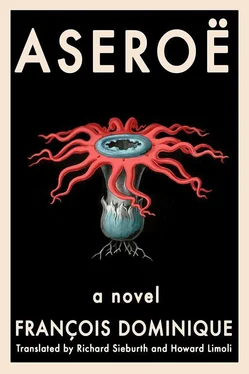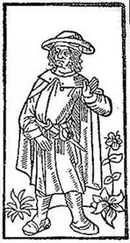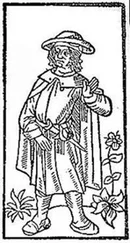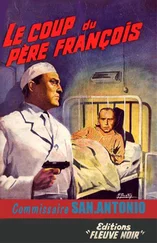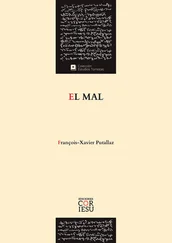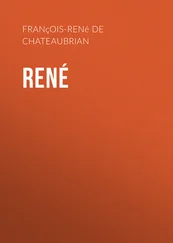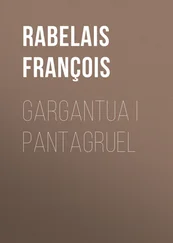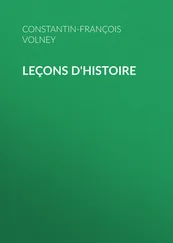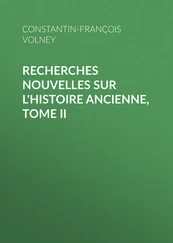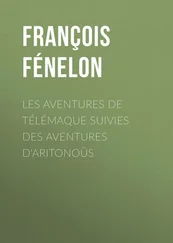François Dominique - Aseroë
Здесь есть возможность читать онлайн «François Dominique - Aseroë» весь текст электронной книги совершенно бесплатно (целиком полную версию без сокращений). В некоторых случаях можно слушать аудио, скачать через торрент в формате fb2 и присутствует краткое содержание. Город: New York, Год выпуска: 2020, ISBN: 2020, Издательство: Bellevue Literary Press, Жанр: Современная проза, на английском языке. Описание произведения, (предисловие) а так же отзывы посетителей доступны на портале библиотеки ЛибКат.
- Название:Aseroë
- Автор:
- Издательство:Bellevue Literary Press
- Жанр:
- Год:2020
- Город:New York
- ISBN:978-1-942658-78-8
- Рейтинг книги:5 / 5. Голосов: 1
-
Избранное:Добавить в избранное
- Отзывы:
-
Ваша оценка:
- 100
- 1
- 2
- 3
- 4
- 5
Aseroë: краткое содержание, описание и аннотация
Предлагаем к чтению аннотацию, описание, краткое содержание или предисловие (зависит от того, что написал сам автор книги «Aseroë»). Если вы не нашли необходимую информацию о книге — напишите в комментариях, мы постараемся отыскать её.
Aseroë — читать онлайн бесплатно полную книгу (весь текст) целиком
Ниже представлен текст книги, разбитый по страницам. Система сохранения места последней прочитанной страницы, позволяет с удобством читать онлайн бесплатно книгу «Aseroë», без необходимости каждый раз заново искать на чём Вы остановились. Поставьте закладку, и сможете в любой момент перейти на страницу, на которой закончили чтение.
Интервал:
Закладка:
Orpheus, precisely. I traveled to Laon with B. in the early fall to see a fourth-century mosaic on which an anonymous artist had represented the god, his lyre, and the beasts charmed by his song. The forms seemed naïve, but I liked the composition and the palette of colors—blues, greens, golds, blacks.
For the unknown author of this work, the Orphic songs were already nothing more than simple nursery rhymes, but they still preserved the glamor of magical formulas. A few centuries earlier, Apollonius of Rhodes—at the beginning of his Argonautica —attributed this double mission to Orpheus:
…To say what I had never before set forth…
…To insist above all on the dire necessity of the Chaos of yore…
What can song still mean when the memory of a disaster as old as the world is mingled with the urge for an originating word? Those who wish to listen are few in number. The shops, the churches, the streets, the loudspeakers all speak at every moment of the death of Orpheus—hands clapping at the announcement that “The Price Is Right,” tinny slogans, canned laughter. I no longer hear common nouns. Have meanings been stripped from every verb, have names been removed from every object? So many real yet invisible wounds. Zombie words wandering here and there, looking in vain for their correspondence to things.
In the thickness of lies, oblivion precedes every memorable deed; poems are nothing more than thin fissures—cracks that refuse a world where the violation of light and song announces nothing but atrocities to come. On the road to Laon, I heard shouts in broad daylight. I was overcome with anguish. Cries calling out, me unable to answer.

The Laon mosaic occupied a wall in the great hall of the municipal building. We asked for a key from the concierge, who told us, “Except for a few foreign tourists, I don’t get many visitors. It’s a room where children go to draw.” On the other walls, we saw gouaches and collages, with bright colors, guarded by a row of antique busts—Cicero, Demosthenes, Caesar—which hadn’t been used as models for decades.
Before leaving the room, I saw a dog at Orpheus’s feet. This unobtrusive dog had neither the grace nor the radiant colors of the wild beasts and birds summoned by the master of song. The dog was listening without drawing attention to himself. I should have noticed him sooner, for this animal belongs, like the lyre and the Phrygian cap, among the attributes of Orpheus. What sort of role could such a dog play in the legend? Was he capable of following his master into Hell and returning unharmed? The ancient poems say nothing about this; but the moment I saw the mutt, so modest, so attentive, I ceased to imagine the celestial transports caused by some primordial sound-and light- show (Chaos, Night, Day, the original Logos…) and I said to myself, My place is among the eternity of beasts! We humans are now lower than the animals. Dumbed down by our modern surroundings, we no longer understand a single thing. I should be like this dog; that would be ideal! To become as Orpheus’ dog—this, luckily, still remains a possibility. Rilke, my most constant companion, would not greet the idea with sarcasm. In his Eighth Elegy, the song rises to its apogee the moment he recognizes in animals the VISION OF THE OPEN:
What IS outside we know solely by the face of the animal; as for children, already too early on, we turn them backwards and force them to see, from behind, readymade forms, and not what is open, which, in the faces of animals, is so profound, so free from death.
Yes, act like a dog, before writing a single line of verse. Several weeks later, in Montpellier, at a time when I had an appointment with “Captain Hatteras,” I was dragging around my carcass here and there. I felt too low to appear in public, and at one point I started following a mongrel dog, a cross between a pointer and a terrier, who had obviously lost its master. I followed it step by step through the Peyrou garden, down the length of its beautiful alleyways, around the trees at its corners, and wound up in front of a balustrade, where the dog agreed to nuzzle up to me. From there I observed the Roman aqueduct, which extended beyond the central lane all the way, so I imagined, toward Saint-Guilhem-le-Désert.
Instead of keeping me company, the dog abandoned me. Bereft of my new companion, I followed a winding path through the narrow streets of the city, which took me all the way to the Place de la Comédie and rue de la Loge. It’s silly, but I was depressed because of a book. I needed to trace out this particular route because I was stuck on one of its pages, endlessly bogged down in an Orphic proclamation whose enigma continued to resist me:
THOU SHALT FIND A SPRING TO THE LEFT AND A WHITE CYPRESS. TAKE CARE NOT TO APPROACH THIS SPRING. THOU SHALT FIND ANOTHER FROM WHENCE FLOW THE COOL WATERS OF THE LAKE OF MEMORY. BEFORE IT STAND THE GUARDIANS. AND THOU SHALT SAY UNTO THEM…
I had sworn to fill in the ellipses of this final mutilated command (from a golden plaque on a sixth-century BC tomb), but I despaired of ever succeeding.
The probable conclusion of the fragment must be a password—the formula without which Orpheus would never have succeeded at his task. “I AM A CHILD OF THE EARTH / AND OF THE STARRY SKIES.” I admired this sentence, but my familiarity with it did little to diminish my anxiety. Its words had lost any clear meaning: the way they were used in ancient Greek signifies that we (as humans) belong both to this Earth and to the far-reaching heavens, that we are the children of an Earth rendered fertile by the light, but the Greek words that once meant Earth, Sky, Light possessed spiritual overtones that have long been lost.
Today, numerous barriers block out the echoes of even the simplest song. How was I to restore the ancient text? By skipping over the time-out demanded by Buchenwald and Dachau? By delivering myself of the occasional poem that attempted to bemoan this disaster? By executing a sheer leap of the soul?
I wept as I walked, keenly aware of the ridiculous dead end I had reached in my attempt to decode The Testament of Orpheus. I was thinking of an idiotic dream I had had several days earlier: The Poets’ Society had summoned me; the event was taking place in a shabby room (an attic room?), a cramped room bursting at the seams, with distinguished poets squeezed together, each one remaining, in spite of the presence of the press, aloof from all the others. Some of them were declaiming while pretending not to, others were weeping, still others were snoring, but upon my arrival there was an outburst of sarcasm: “The cur! The cur! How wretched he looks with his short hair!” I wasn’t proud; I was gripping in my pocket a very wrinkled piece of paper onto which, that very morning on the train, I had scribbled this quotation from Virginia Woolf, lifted from one of her journals: “Art is inadmissible. Yet the absence of art would mean that society as a whole had turned into a nightmare without end—the boundlessness of thought upended into the boundlessness of horror.”
At that point, a dismaying idea occurred to me—of the sort that always causes me to rise up in revolt. Instead of wasting your time mucking around in some ancient text, why not spend your time on worthwhile and socially beneficial causes? You’re getting all stirred up over nothing; you’d be better off spending your energies on taking some sort of immediate action against everything it is you loathe. That’s when I felt like hitting somebody. I needed a scapegoat to justify the miserable fact that I had decided to give up writing, Any journalist or pollster or top-notch executive would do. It could be just about anybody: the arbitrariness of my action would be matched by arbitrariness of their misdeeds—just as long as I had the opportunity of slugging someone for no reason whatsoever. No, that was too cowardly; what I needed was a real victim, a completely innocent bystander.
Читать дальшеИнтервал:
Закладка:
Похожие книги на «Aseroë»
Представляем Вашему вниманию похожие книги на «Aseroë» списком для выбора. Мы отобрали схожую по названию и смыслу литературу в надежде предоставить читателям больше вариантов отыскать новые, интересные, ещё непрочитанные произведения.
Обсуждение, отзывы о книге «Aseroë» и просто собственные мнения читателей. Оставьте ваши комментарии, напишите, что Вы думаете о произведении, его смысле или главных героях. Укажите что конкретно понравилось, а что нет, и почему Вы так считаете.
